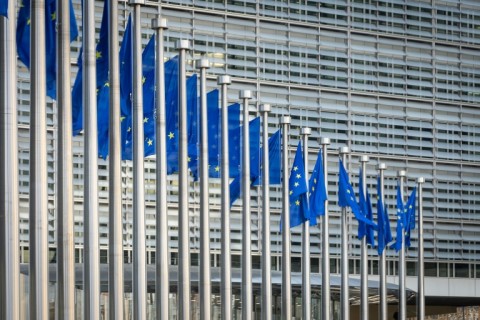
BRUSSELS - The eurozone economy lumbered forward in the first quarter, expanding just 0.1 percent over the previous quarter as high inflation and interest rates weigh on activity.
Germany, the EU's biggest economy, saw growth stagnate at zero percent over the previous quarter.
Year-on-year, Germany was the only country in the single-currency zone to record a contraction, of 0.1 percent.
For the European Union overall, GDP expanded 0.3 percent over the previous quarter, according to the figures from Eurostat, the EU's statistics office.
EU economy commissioner Paolo Gentiloni said the first-quarter data "is encouraging news, which shows a European economy that continues to show resilience against a challenging global backdrop".
The weak-but-positive figure for the eurozone mirrored the reading for the last quarter of 2022, which was also 0.1-percent growth, confirming it had so far escaped recession but that high inflation was still a dampener.
Although eurozone inflation has eased somewhat, it is still 6.9 percent on an annualised basis, more than three times the European Central Bank's target of two percent.
The ECB holds its next monetary policy meeting on Thursday, and all eyes are on it to see if it raises rates yet again, and if so by how much.
The central bank has raised rates by 3.5 percent since July last year and its chief economist, Philip Lane, said this week that "this is still not the right time to stop".
Eurostat's preliminary data suggested Germany was still struggling from the fallout of Russia's war in Ukraine, especially the shift away from Russian gas that has powered much of its industry.
The strongest quarter-on-quarter GDP performer was Portugal, with growth of 1.6 percent, followed by Spain, Italy and Latvia all on 0.5 percent. France, the second-biggest EU economy, showed growth of 0.2 percent.
Quarter-on-quarter declines were recorded for Ireland, at 2.7 percent, and Austria, at 0.3 percent.

